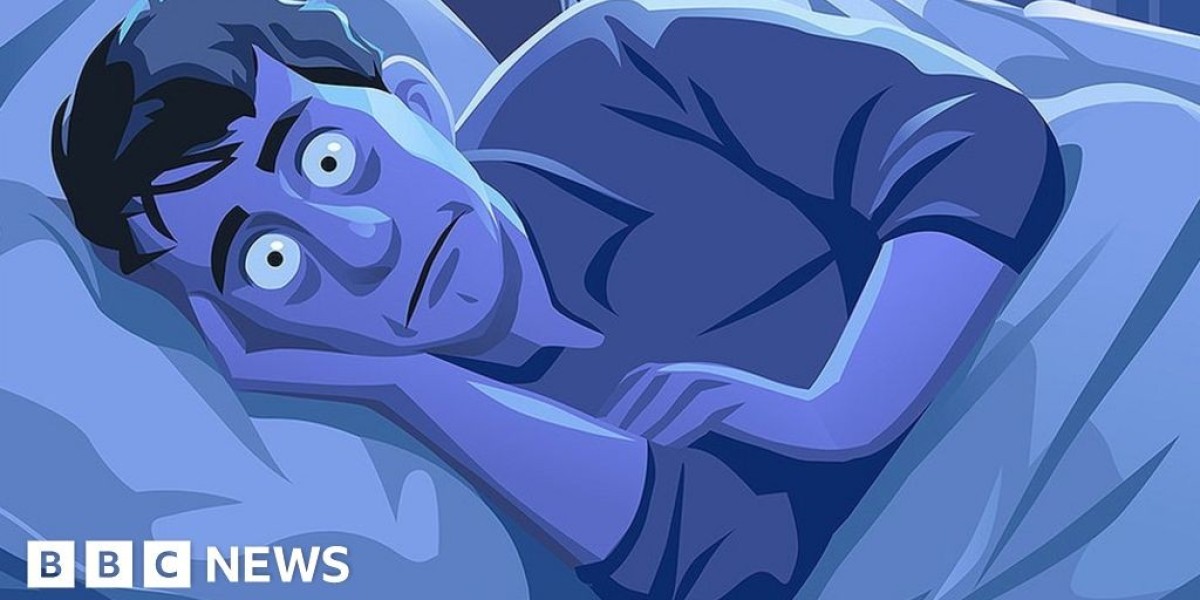Insomnia, once considered a rare affliction, has become a growing epidemic in America. Millions of Americans face sleepless nights, staring at their ceilings or screens, unable to fall or stay asleep. This rise in insomnia is alarming, with far-reaching effects on mental and physical health, work productivity, and overall quality of life. Understanding the causes of this epidemic, its effects, and potential solutions is crucial for individuals and society as a whole.
Causes of Insomnia
Insomnia, characterized by difficulty falling asleep, staying asleep, or experiencing non-restorative sleep, can stem from various factors. While some individuals may struggle with temporary bouts of sleeplessness, chronic insomnia persists for weeks or even months. Several modern-day influences have contributed to the increasing prevalence of insomnia in America.
Stress and Anxiety
One of the primary causes of insomnia is chronic stress. The pressures of work, family, finances, and personal life can elevate cortisol levels, the body’s stress hormone, which disrupts the natural sleep-wake cycle. In particular, anxiety disorders can lead to an overactive mind at night, preventing the body from settling into sleep. The endless loop of worry, where thoughts race uncontrollably, can make it difficult to relax and drift off.
Technology and Screen Time
The rise of digital technology has also played a significant role in the growing insomnia epidemic. The blue light emitted by smartphones, laptops, and tablets suppresses melatonin production, the hormone responsible for regulating sleep. Excessive screen time, especially before bed, can trick the brain into thinking it’s still daytime, making it difficult to fall asleep. Furthermore, the addictive nature of social media and streaming services often leads to people staying up later than intended.
Irregular Sleep Schedules
Many Americans juggle long work hours, shift work, or erratic schedules, which can disrupt their circadian rhythms. The circadian rhythm, our internal body clock, dictates when we feel sleepy and when we’re alert. Consistent disruptions to this rhythm can lead to difficulties falling and staying asleep, and over time, it can develop into chronic insomnia.
Lifestyle Choices
Lifestyle habits such as caffeine consumption, alcohol use, and a lack of physical exercise can also interfere with sleep patterns. While a cup of coffee may help people stay awake during the day, consuming caffeine too late in the afternoon can delay sleep. Similarly, while alcohol might induce drowsiness, it interferes with the deeper stages of sleep, resulting in poor sleep quality.
Effects of Insomnia
The consequences of insomnia go far beyond simply feeling tired. The effects are wide-ranging, affecting cognitive function, emotional health, and physical well-being.
Cognitive Impairment
Sleep is essential for memory consolidation, problem-solving, and overall cognitive function. Insomnia leads to daytime fatigue, difficulty concentrating, memory lapses, and poor decision-making. As a result, individuals may struggle to perform well at work or school, and the risk of accidents, both at home and in the workplace, increases significantly.
Emotional Disturbances
Insomnia can severely impact mental health. Chronic sleep deprivation is closely linked to mood disorders, such as depression and anxiety. Sleep disturbances create a vicious cycle: anxiety and depression can cause insomnia, and lack of sleep can exacerbate these conditions. Over time, individuals may feel emotionally drained, irritable, and unable to cope with stress effectively.
Physical Health Consequences
The physical toll of insomnia is immense. Sleep is crucial for the body’s restorative processes, including immune function, metabolism, and cardiovascular health. Persistent insomnia has been associated with an increased risk of heart disease, high blood pressure, stroke, and type 2 diabetes. Additionally, it weakens the immune system, making individuals more susceptible to illnesses.
Social and Economic Costs
Beyond individual health, the economic costs of insomnia are staggering. The National Sleep Foundation estimates that sleep deprivation costs the U.S. economy over $411 billion annually due to reduced workplace productivity, absenteeism, and healthcare expenses. Additionally, relationships can suffer when individuals are emotionally exhausted and unable to engage meaningfully with family or friends.
Solutions to Combat Insomnia
While the rise of insomnia is concerning, there are several effective strategies to combat this growing issue. Both lifestyle changes and professional interventions can help individuals reclaim their sleep.
Cognitive Behavioral Therapy for Insomnia (CBT-I)
CBT-I is widely regarded as the gold-standard treatment for chronic insomnia. This therapeutic approach helps individuals identify and change negative thoughts and behaviors that contribute to sleeplessness. CBT-I teaches practical skills such as stimulus control, sleep restriction, and relaxation techniques, offering a long-term solution to insomnia without the need for medication.
Sleep Hygiene
Improving sleep hygiene is one of the most straightforward ways to combat insomnia. This involves creating an environment conducive to sleep and establishing a consistent bedtime routine. Steps include keeping the bedroom dark and quiet, avoiding screens at least an hour before bed, and maintaining a regular sleep-wake schedule, even on weekends. Avoiding heavy meals, caffeine, and alcohol before bedtime can also help.
Mindfulness and Relaxation Techniques
Practicing mindfulness and relaxation techniques such as meditation, deep breathing, and progressive muscle relaxation can reduce anxiety and promote restful sleep. These techniques calm the mind and body, making it easier to transition into sleep. Yoga and stretching before bedtime can also promote relaxation.
Limiting Technology Use
Reducing exposure to screens and blue light in the evening can significantly improve sleep quality. Using blue light-blocking glasses or switching to night mode on devices can help mitigate some of the harmful effects. Additionally, establishing “tech-free” zones in the home, particularly in the bedroom, can encourage better sleep.
Conclusion
The rise of insomnia in America reflects the fast-paced, technology-driven lifestyle many people lead today. Stress, technology, irregular schedules, and unhealthy habits all contribute to this growing sleep crisis. However, the effects of insomnia on cognitive, emotional, and physical health make it a critical issue to address. By adopting better sleep hygiene, seeking therapeutic interventions like CBT-I, and implementing mindfulness techniques, individuals can improve their sleep quality and overall well-being, ultimately reversing the rising tide of insomnia.



